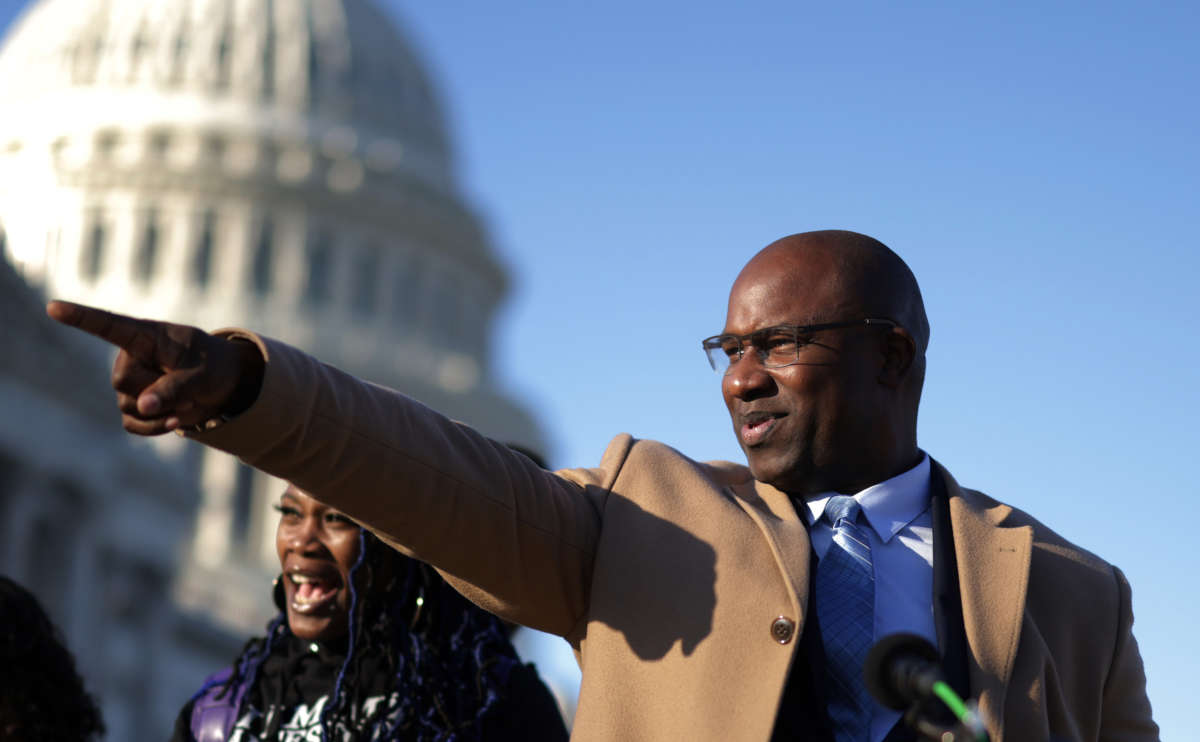Did you know that Truthout is a nonprofit and independently funded by readers like you? If you value what we do, please support our work with a donation.
As the Supreme Court prepares to hear a case challenging affirmative action, Rep. Jamaal Bowman (D-New York) and Sen. Jeff Merkley (D-Oregon) are pushing to end legacy and donor admissions practices at colleges that receive federal funding.
On Wednesday, the two lawmakers introduced the Fair College Admissions for Students Act, which would bar colleges that receive funding from federal student aid from considering legacies – or a particular applicant’s family ties – in the admissions process. Legacy students, especially at elite universities, can take up a large portion of an admissions class, pushing students who would otherwise qualify out of the equation.
“All students deserve an equitable opportunity to gain admission to institutions of higher education, but students whose parents didn’t attend or donate to a university are often overlooked in the admissions process due to the historically classist and racist legacy and donor admissions practices at many schools across the country,” Bowman said in a statement.
“The legacy admissions practice which disproportionately benefits rich, white, and connected students, and has antisemitic and anti-immigrant roots, creates another systemic barrier to accessing higher education for low-income students, students of color, and first-generation students,” the New York lawmaker continued.
Legacy admissions at top universities can take up 10 or 25 percent of an admissions class, according to the lawmakers. At universities that consider family ties in admissions, research has estimated that legacy students are three to eight times more likely to be admitted; the practice gives overwhelming preference to wealthy white students.
“Getting into college can be really tough for people without lots of money, whose parents have never been through the process before, who can’t pay for test prep or advisers to help them craft the perfect essay,” Merkley said. “Children of donors and alumni may be excellent students and well-qualified, but the last people who need extra help in the complicated and competitive college admissions process are those who start with the advantages of family education and money.”
The problem is especially egregious at Harvard, where legacy students, students with donor families or recruited athletes can make up 43 percent of all white students that are admitted in a given year. Although the acceptance rate for all applicants at Harvard is about 5 percent, the acceptance rate for legacy students is a whopping 33 percent.
Such practices discriminate against first-generation college students and poor students – and equity advocates say that these policies essentially amount to affirmative action for rich white students.
However, conservative opponents of racial affirmative action – which helps to uplift non-white students in college admissions and diversify college campuses – have been mum about legacy admissions, even though they claim to support equity in the admissions process.
Meanwhile, the Supreme Court may soon overturn racial affirmative action due to conservative opposition. The court, which has a conservative majority, is slated to hear a case that could end the policy aimed at giving more opportunities to students of color.
Affirmative action helps Black and Latinx students in college admissions in particular; when California ended its practice of affirmative action in 1996, the ban led to lower degree attainment and wages for Black and Latinx students in the state.
The plaintiff in the Supreme Court case, Students for Fair Admissions, argues that affirmative action works against Asian students. However, Asian writers and students have disputed that this is true.
Press freedom is under attack
As Trump cracks down on political speech, independent media is increasingly necessary.
Truthout produces reporting you won’t see in the mainstream: journalism from the frontlines of global conflict, interviews with grassroots movement leaders, high-quality legal analysis and more.
Our work is possible thanks to reader support. Help Truthout catalyze change and social justice — make a tax-deductible monthly or one-time donation today.
